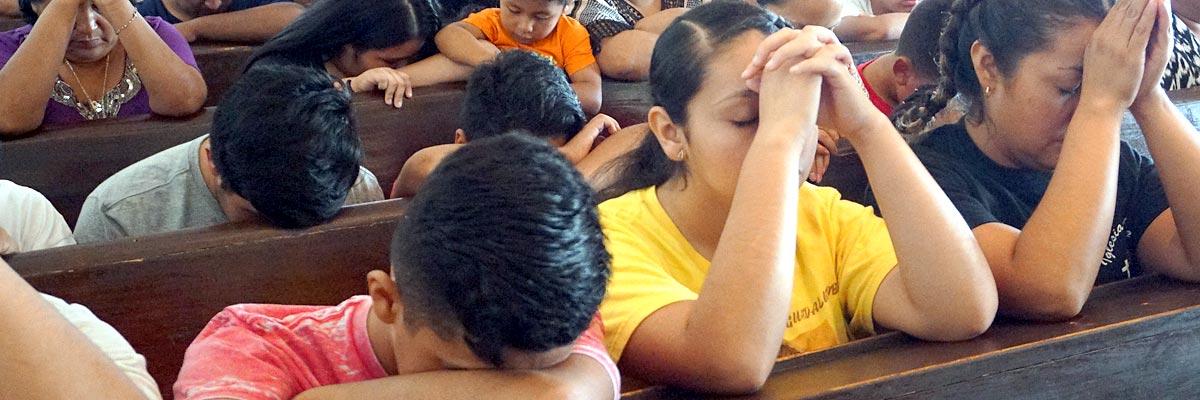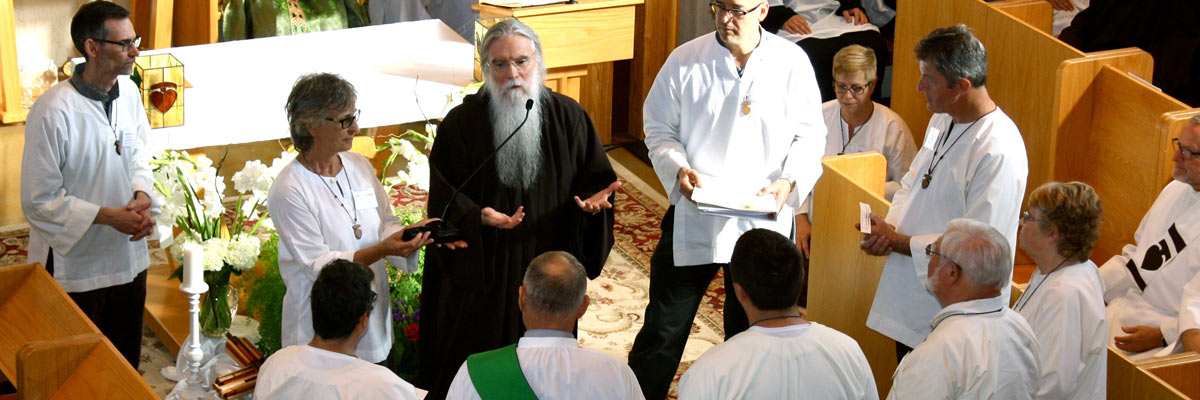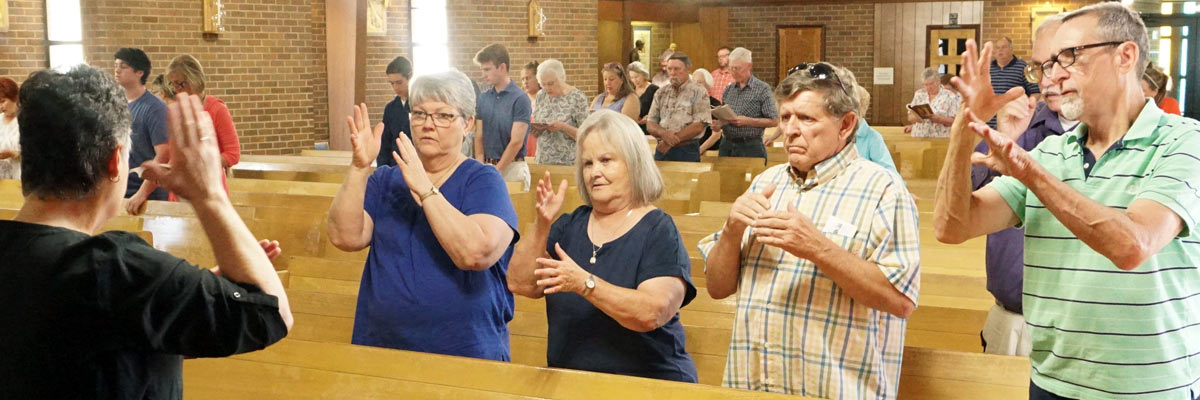Official Website of the
Catholic Diocese of Little Rock
Enigmatic Elijah, once & future prophet
Published: January 28, 2012
This is the eighth column in a 13-part series
By Clifford M. Yeary
Associate Director, Little Rock Scripture Study
Enigmatic figures in the Bible are usually those that pop into a narrative with little fanfare and disappear just as quickly, but not without arousing our deep curiosity. In Genesis alone there are three such enigmas. There is Enoch, who "walked with God, and he was no longer here, for God took him" (Genesis 5:24). Personally, I want to read the original missing person's report. Then there is Enoch's son, Methuselah, who is said to have lived 969 years (Genesis 5:27). Surely someone who lived so long should have some story to tell!
 And who was this priest Melchizedek, king of Salem, who blessed and broke bread with Abraham (Genesis 14:18-20)? I want to read a book about him, but if there was one, it would be all speculation. The lives of these figures are enigmas. They leave us only with big, unanswered questions.
And who was this priest Melchizedek, king of Salem, who blessed and broke bread with Abraham (Genesis 14:18-20)? I want to read a book about him, but if there was one, it would be all speculation. The lives of these figures are enigmas. They leave us only with big, unanswered questions.
Elijah is a figure at least as enigmatic as Enoch, because, like Enoch, he isn't said to have ever died. Instead, he is taken up into heaven on a fiery chariot. But unlike Enoch and many other biblical enigmas, the Bible tells us a lot about Elijah's life and exploits (1 Kings, chapters 17-19 and 21; 2 Kings, chapters 1-2). Yet, despite all we read about him, his greatest feat of all was to leave successive generations of God's people with the mysterious hope and expectation that he would come again (Sirach 48:4-11; Malachi 3:23).
The biblical accounts of Elijah's life are filled with miracles that emphasize God's power in opposition to the cruelty and apostasy of Ahab and Jezebel, who ruled the northern tribes of Israel from 869 to 850 B.C. Elijah is considered a prophet, but unlike later prophets who proclaim God's word in judgment of the evil of the times, Elijah confronts that evil as the instrument of God's power.
At Elijah's word, Israel experienced a three-year drought as a sign of judgment against the worship of the storm god Baal that Queen Jezebel has promoted throughout Israel. The drought would demonstrate that the so-called god of storms had no power in the land that belonged to the God of Israel.Elijah seems fearless in his faith in God. On Mt. Carmel, in the presence of King Ahab and 450 priests of Baal as well as the surrounding populace, he proposes a duel: let Baal's prophets offer a bull of their choice on their altar and Elijah will offer a bull on an altar to Yahweh. Let each side ask their god to consume their bull. "The God who answers with fire is God" (1 Kings 18:24).
Throughout the morning Baal's prophets implore him with increasing desperation, even slashing their limbs in frenzy to gain Baal's attention. Elijah mocks them and even suggests that Baal has gone on a trip or is otherwise occupied and cannot respond. When it is Elijah's turn, he prays that God will respond in order that the people will know that the Lord is their God (1 Kings 18:36-37). In answer, fire flares down from heaven, consuming the bull. Having shown the people the power of their God, Elijah proclaims an end to the drought and a storm immediately approaches on the horizon.
Elijah is not fearless, however. Following this mighty display of God's power, Queen Jezebel threatens his life in retaliation for the humiliation of Baal. Elijah flees in fear and even asks God to take his life. Instead, God sends an angel to strengthen him and sends him on a journey to Mt. Horeb, the place where God had revealed himself to Moses and made covenant with Israel (Deuteronomy 5:2-3). There God will speak directly to Elijah (1 Kings 19:1-18).
On the mountain of revelation Elijah listens intently for God. There is a violent wind, but God is not heard there, nor in an earthquake, nor from a raging fire. Finally, in "a light silent sound," God speaks to him (1 Kings 19:11-12). Elijah is to take courage in naming the man to succeed Ahab as king and to appoint Elisha as Elijah's own successor.
Elijah was a prophet who vindicated the Lord as Israel's God in a time of great apostasy. Believed to be taken up into heaven, his return is said to initiate Israel's ultimate vindication. In Matthew, Mark and Luke, Elijah's spiritual return is made known in the ministry of John the Baptist (Matthew 11:7-14; Mark 9:13; Luke 1:13-17).
Study Questions
- What makes Elijah an enigmatic figure in the Bible?
- Elijah proclaimed a drought to help return his people to God. When has fasting or forgoing some pleasure helped you in your quest for God?
- How would you explain Elijah's fear of Jezebel after he had so convincingly demonstrated the power of God (1 Kings 19:1-4?
- Why is John the Baptist associated with Elijah?
This article was originally published in Arkansas Catholic Jan. 28, 2012. Copyright Diocese of Little Rock. All rights reserved. This article may be copied or redistributed with acknowledgement and permission of the publisher.









